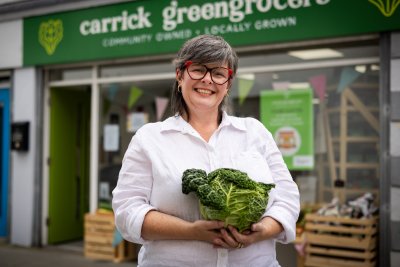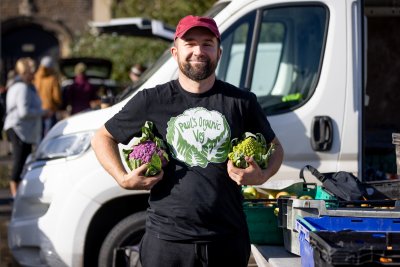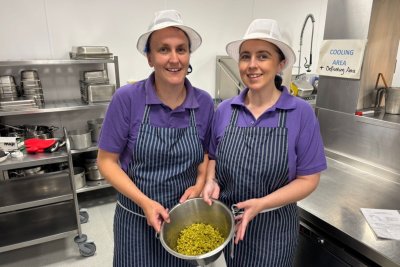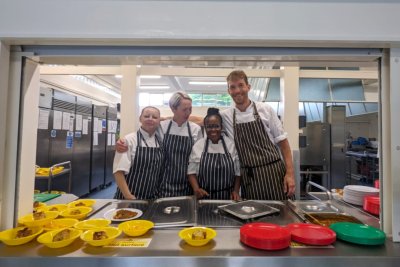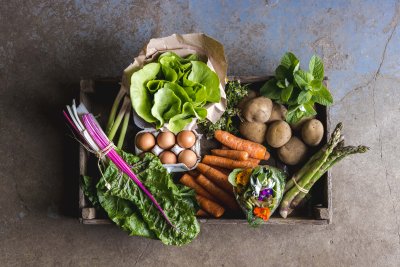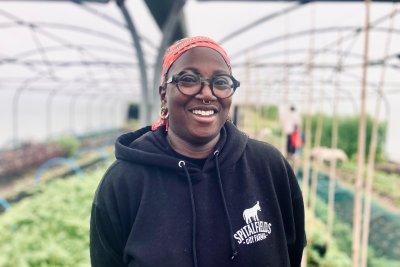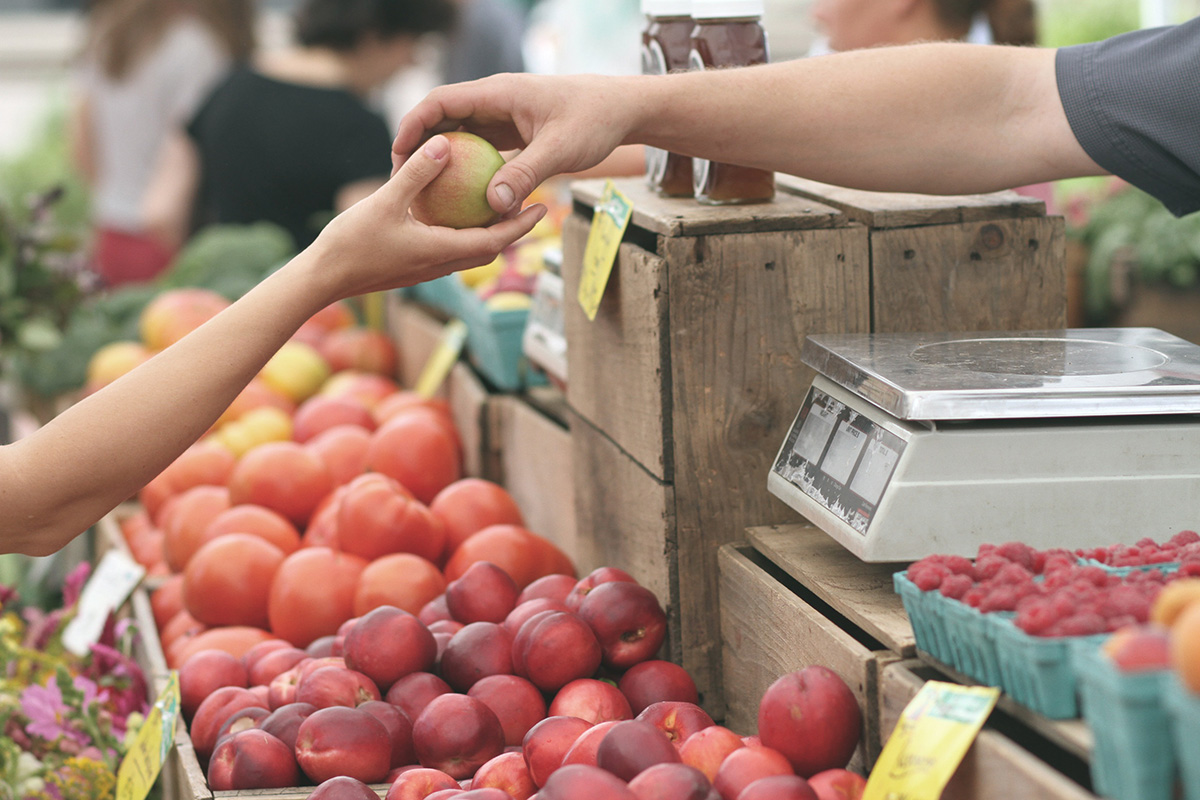 Photo credit: Erik Scheel, Pexels
Photo credit: Erik Scheel, Pexels

Ministers challenged AGAIN to guarantee food hardship fund for vulnerable people in a no-deal Brexit
Marked 'Extremely Urgent', Sustain has coordinated an open letter to Welfare Secretary Thérèse Coffey, asking her to guarantee a hardship fund to help vulnerable people get the food they need in the event of a no-deal Brexit
The following presents the text of the joint letter, from leading food aid, surplus food redistribution and public sector food organisations, joined by leading representatives from the food and distribution industries. The food charities that have co-signed this letter wrote to Welfare Secretary Rt. Hon Thérèse Coffey MP's predecessor at the Department of Work and Pensions Amber Rudd MP in July 2019, and met with officials, but received no response to our concerns or submission of evidence.
With only six weeks to go until a potential no-deal Brexit, and the Government Operation Yellowhammer briefing anticipating food supply disruption, fresh food shortages and price hikes, and with HM Treasury stating that: “Low-income groups will be disproportionately affected by any price rises in food and fuel”, we marked our letter 'Extremely Urgent'.
Rt. Hon. Thérèse Coffey MP
Secretary of State for Work and Pensions
Department of Work and Pensions
Caxton House, Tothill Street, Westminster, London SW1H 9NA
Cc: Rt. Hon. Michael Gove MP, Cabinet member with responsibility for ‘no deal’ Brexit preparations
Thursday 19 September, 2019
EXTREMELY URGENT: Please confirm a national hardship fund to guarantee that vulnerable adults
and children will not go hungry in the event of a ‘no deal’ Brexit
Dear Secretary of State Thérèse Coffey,
Food charities co-signing this letter represent the main networks of organisations that provide food for millions of people most in need in the UK, via homeless shelters, domestic violence refuges, mental health institutions, school breakfast clubs, food banks and other frontline community outlets. We wrote to your predecessor Amber Rudd MP on 26 July 2019 with our pressing concerns but received no reply. We are now joined by leading industry representatives from the food provisioning and distribution trades.
Following the publication of the Operation Yellowhammer document on 11 September, we are now exceptionally worried and request that you treat this letter as a matter of extreme urgency. The Yellowhammer document sets out ‘reasonable worst-case planning assumptions’ (or perhaps ‘base assumptions’) for a no-deal Brexit. As you will know, these include:
- The possibility of significant delays, disruption and shortages in fresh food supplies over a period of at least three months – possibly more – and significant food price rises.
- HM Treasury stating that: “Low-income groups will be disproportionately affected by any price rises in food and fuel”. We agree.
The beneficiaries of the food charities co-signing this letter, and the frontline charities we support, rely on food donations from companies and individuals that could easily dry up in the event of food price rises or serious food supply chain disruption. We are clear that food banks and frontline charities are in no position to respond to such an eventuality, having neither the money nor storage to stockpile food, often being run by volunteers, and many being already extremely over-stretched meeting current need. Further, whilst Defra says that the food industry is well-placed to secure food supplies, the commercial supply chain is not well placed to reach vulnerable people, nor does it have a duty to do so. It should be the Government’s responsibility to be clear how it will respond and protect vulnerable people in the event of this situation arising.
We were therefore alarmed to read Defra’s opinion published on 6 September 2019, in response to a Parliamentary Question (full text available here), that:
- “Defra is not responsible for the supply of food and drink to the population in an emergency.”
- “Local authorities do not have a general duty to provide food but have duties to provide food to particular groups in particular circumstances, including schools and care settings” (whilst a letter from Schools Minister Lord Agnew reported in the TES yesterday reportedly asks local authorities and schools themselves to check if their suppliers can continue to supply the food they need).
- “The expertise, capability and levers to plan for and respond to food supply disruption lie within the industry,” and “The food industry is experienced in dealing with scenarios that can affect food supply.” We strongly contest the assumption that the food industry will be able feed people on a very low income, those who may lose their jobs as a result of a no-deal Brexit, those in homeless shelters, domestic violence refuges or destitution, those with no recourse to public funds, or people receiving meals in mental health or drugs programmes; as do many of the food industry leaders that we have spoken with.
- Food for schools (Department for Education), hospitals and care settings (Department of Health and Social Care) and prisons (Ministry of Justice) “is led” by different government departments and Defra provides “advice and support”.
- And there is a welfare benefits safety net. But we have heard of no plans to provide additional money, and we are not aware of any plans for effective disbursement in an emergency. Indeed, despite the fact that the food charities co-signing this letter work with frontline groups, these were formally consulted on these issues by government for the first time only in July 2019.
Your predecessor at least twice made reference in public to the possibility of a national ‘hardship fund’ to help those most in need, in the event of a ‘no deal’ Brexit. Rt. Hon. Amber Rudd MP told the Work and Pensions Select Committee in March 2019 that DWP was “looking at the possibility” of a national hardship fund and mentioned it again on the BBC’s Andrew Marr show mid-July 2019.
As a matter of extreme urgency, we ask you to publish details of how such a national hardship fund would be put in place and delivered, to guarantee that vulnerable adults and children will not go hungry in the event of a no-deal Brexit. We believe it should include cash payments to guarantee adequate food for the period of disruption (which we understand could be three months or more), consisting of:
- As a first priority, cash crisis grants to the increasing number of people trying to manage on a very low income, to ensure that they are able to buy food, with money distributed via suitable public sector institutions, agencies and channels.
- Also, cash grants – again via suitable public sector institutions, agencies and channels – directly to frontline charities, including homeless shelters, domestic violence refuges, mental health programmes, and services serving people with no recourse to public funds. We understand some provision of this kind has been made by the Welsh and Scottish Governments, but not in England, nor Northern Ireland.
This year, the food charities listed among the signatories to this letter have – individually or severally – met with officials from Defra, the Department for Work and Pensions, HM Treasury, the Ministry of Housing, Communities and Local Government (in July and September 2019); written to the Prime Minister and numerous Secretaries of State and Ministers; sent our concerns to the 45 Local Resilience Forums; presented to nine regional Council chief executives; and issued statements of concern in select committees, parliamentary questions, Westminster Hall Debates and numerous media stories and letters to the press. Yet despite these strenuous efforts and many conscientious interventions by admirable individual civil servants and local government officials, LRF representatives, food industry leaders, MPs and civil-society groups, most of our questions and concerns remain wholly unanswered, and our evidence and the particular needs of vulnerable beneficiaries have not been officially acknowledged.
We commend the recent efforts of several senior civil servants to bring these matters to the attention of the Cabinet-level no-deal Brexit committee. We request your urgent attention to a ‘no deal’ Brexit food contingency plan for people most in need. Thank you for your immediate attention to these vitally important matters. We look forward to hearing from you at your earliest convenience.
Yours sincerely,
Lindsay Boswell, Chief Executive, FareShare, the UK's largest charity fighting hunger and food waste, saving good food from going to waste; redistributing it to frontline charities
Emma Revie, Chief Executive, Trussell Trust, which runs a network of 1,200 food bank centres around the UK and works to stop UK hunger and poverty
Sabine Goodwin, Coordinator, Independent Food Aid Network, a network of independent, grassroots food aid providers working to secure food security for all
Andrew Kuyk, Director General, Provision Trade Federation, the trade association representing companies who trade or manufacture provisions such as dairy products, cheese, butter, milk powders, yogurt and other short-life dairy desserts; bacon, ham, seafood
James Bielby, Chief Executive, Federation of Wholesale Distributors, whose members distribute food, drink and associated products to over 450,000 retail and catering businesses in the UK
Laura Winningham, Chief Executive, City Harvest London, putting fresh surplus food to good use in a sustainable way, by redistributing to organisations that feed the hungry
Neel Radia, Chair, National Association of Care Catering
Stephanie Wood, Chief Executive, School Food Matters
Tom Andrews, Director, Sustainable Food Cities
Victoria Williams, Director, Food Matters
Claire Pritchard, Chair, London Food Board
Andy Jones, Chair, PSC100 public sector catering group
James Cashmore, Director, Food for Life Served Here
Anna Taylor, Executive Director, The Food Foundation
Niall Cooper, Director, Church Action on Poverty
Professor Tim Lang, Professor of Food Policy, City, University of London
Baroness Rosie Boycott, founding member of the House of Lords Committee on Food, Poverty, Health and the Environment
Letter coordinated by Kath Dalmeny, Chief Executive of Sustain: The alliance for better food and farming (also for correspondence, contact details provided)
Good Food Trade Campaign: Campaigning for good trade that benefits people and the planet at home and overseas.
Sustain
The Green House
244-254 Cambridge Heath Road
London E2 9DA
020 3559 6777
sustain@sustainweb.org
Sustain advocates food and agriculture policies and practices that enhance the health and welfare of people and animals, improve the working and living environment, promote equity and enrich society and culture.
© Sustain 2026
Registered charity (no. 1018643)
Data privacy & cookies
Icons by Icons8
